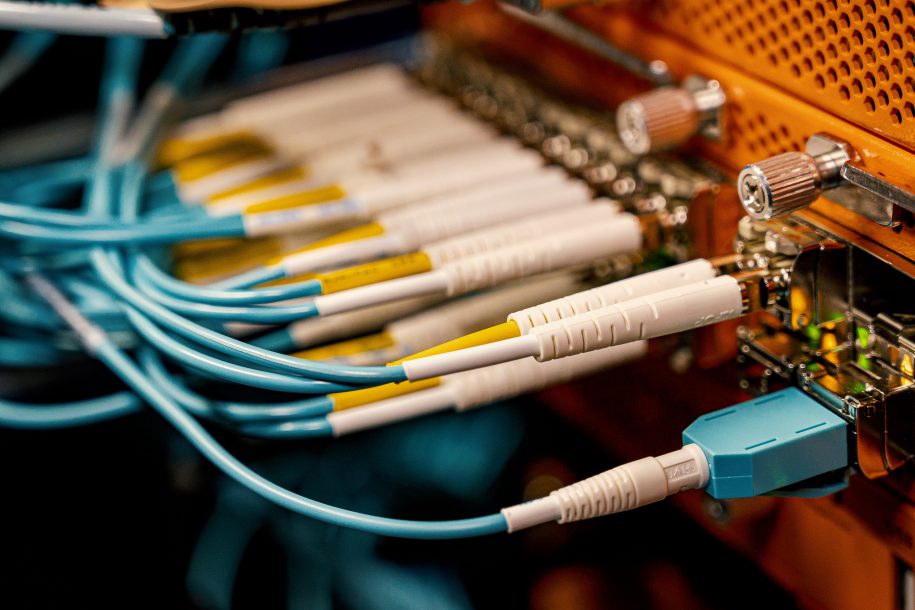What is Metro Ethernet?
Metro Ethernet refers to the extension of Ethernet services beyond the local area network (LAN) to a metropolitan area network (MAN) or a larger geographical area. It leverages Ethernet technology and protocols to provide high-speed, scalable, and flexible connectivity within a metropolitan area.
Key features of Metro Ethernet include:
- Scalability: Metro Ethernet offers scalability in terms of bandwidth capacity. It provides flexible options for increasing or decreasing bandwidth to meet changing network requirements. This allows organizations to easily adjust their network capacity as needed.
- High-Speed Connectivity: Metro Ethernet provides high-speed data transmission, ranging from 10 Mbps to multiple Gbps. It offers fast and reliable connectivity, enabling efficient transfer of large volumes of data, multimedia content, and real-time applications.
- Ethernet Standards: Metro Ethernet is based on Ethernet technology, which is widely used in LAN environments. It leverages the familiarity, simplicity, and compatibility of Ethernet protocols and equipment, making it easier to integrate Metro Ethernet services into existing network infrastructures.
- Multipoint Connectivity: Metro Ethernet supports multipoint connectivity, enabling multiple locations within a metropolitan area to be interconnected. This facilitates efficient communication, data sharing, and centralized resource access between offices, data centers, and other facilities.
- Service-Level Agreements (SLAs): Metro Ethernet services often come with SLAs that define the quality of service, including performance metrics such as availability, latency, and packet loss. SLAs ensure that organizations receive the agreed-upon level of service and can have predictable network performance.
- Cost-Effectiveness: Metro Ethernet can offer cost advantages compared to traditional leased line technologies. It allows organizations to consolidate their data and voice traffic onto a single network infrastructure, reducing costs associated with maintaining separate networks.
Metro Ethernet is commonly used by businesses and organizations that require high-performance, scalable, and flexible connectivity within a metropolitan area. It facilitates efficient data transfer, seamless communication, and centralized resource access. Typical use cases include interconnecting multiple sites within a city, connecting data centers, supporting cloud connectivity, and enabling multimedia applications such as video conferencing or IP-based voice services.
Overall, Metro Ethernet provides a scalable, high-speed, and cost-effective solution for businesses and organizations to meet their networking needs within a metropolitan area
Who Should Use Metro Ethernet?
Metro Ethernet is suitable for a wide range of businesses and organizations that require high-speed, scalable, and flexible connectivity within a metropolitan area. Here are some examples of the types of entities that can benefit from using Metro Ethernet:
- Multi-Site Organizations: Businesses with multiple locations within a metropolitan area, such as branch offices, retail stores, or regional offices, can utilize Metro Ethernet to interconnect their sites. This enables seamless communication, data sharing, and centralized resource access.
- Educational Institutions: Universities, colleges, and schools often have multiple campuses or buildings spread across a metropolitan area. Metro Ethernet allows them to establish reliable and high-speed connectivity between campuses, facilitating efficient data sharing, collaboration, and resource access.
- Healthcare Providers: Hospitals, clinics, and healthcare organizations can use Metro Ethernet to connect their facilities within a metropolitan area. This enables secure and fast transmission of patient data, medical images, and other critical information between different locations.
- Government Agencies: Government departments and agencies often have offices and facilities scattered across a metropolitan area. Metro Ethernet helps establish dedicated and secure connections, enabling efficient communication, data sharing, and collaboration among government entities.
- Media and Broadcasting Companies: Media organizations, including television and radio broadcasters, can leverage Metro Ethernet to transmit high-quality video and audio feeds between production studios, transmission sites, and broadcasting centers within a metro area. This ensures efficient content distribution and delivery.
- Financial Institutions: Banks, financial companies, and stock exchanges require fast and secure connectivity for real-time transaction processing, data exchange, and communication between branches, headquarters, and trading partners within a metropolitan area. Metro Ethernet provides a reliable and high-performance solution for their networking needs.
- Content Delivery Networks (CDNs): CDNs rely on Metro Ethernet to establish fast and dedicated connections between data centers within a metro area. This enables efficient content distribution, media streaming, and delivering internet services with low latency and high reliability.
- Cloud Service Providers: Cloud service providers often require robust and high-speed connectivity between their data centers and customer locations within a metropolitan area. Metro Ethernet enables efficient cloud connectivity and data transfer.
These are just a few examples, and the suitability of Metro Ethernet depends on the specific needs and requirements of the organization. Metro Ethernet is an effective solution for businesses and organizations that seek high-performance, scalable, and cost-effective connectivity within a metropolitan area.
What Are The Different Between Leased Line and Metro Ethernet (Metro-E)?
Leased lines and Metro Ethernet are both dedicated point-to-point connections that provide high-speed data transfer between two locations. However, there are some differences between the two.
| LEASED LINE | METRO-ETHERNET |
| Using ADSL connection which or copper line | Using Optical Fiber connection |
| No limitation of bandwidth which supports speeds from 1.5Mbps to 1GBps or more | No limitation of bandwidth which supports speed from 1.5Mbps to 1GBps or more |
Talk To Us
We offer a wide range of internet services including broadband, dedicated internet access (DIA), METRO-E, leased line, fiber internet, xDSL and etc. In Malaysia, we have many prestigious including Accenture, Adidas, Honda, Mudajaya, MSIG and etc. Please feel free to contact us.


Leave a Reply